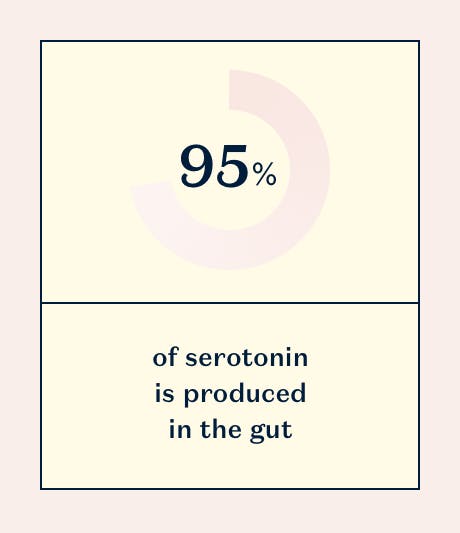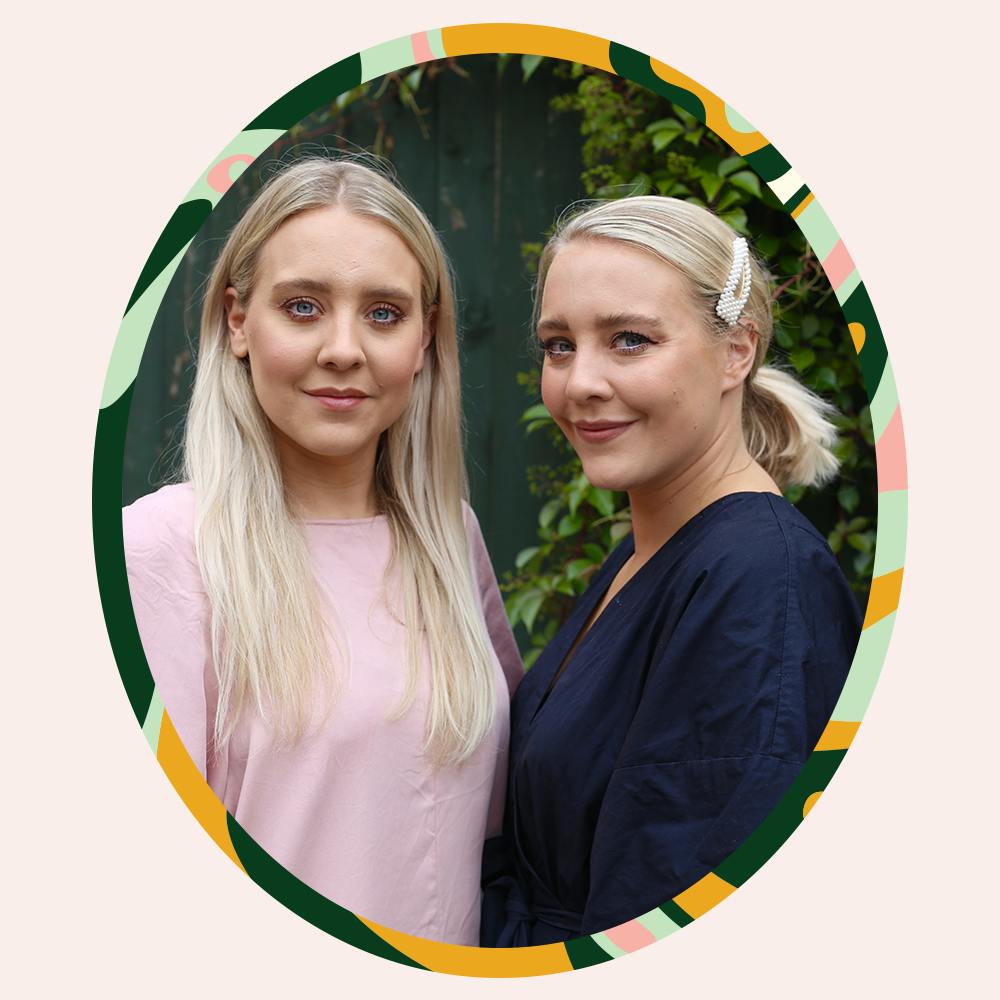Two Scottish DJs walk into a hospital… This is no punchline, just the beginnings of The Gut Stuff—a gut health business started by twin DJs Lisa and Alana Macfarlane.
Otherwise known as The Mac Twins (yeah, the ones that DJ Love Island), Lisa and Alana would gig by night and guinea pig by day, volunteering for medical research at King's College London. And then, in one particular study run by Professor Tim Spectrum, the identical twins discovered that although they share 100% of the same DNA, their guts only share 40% of the same microbiota (more on that in a moment).
Today, The Gut Stuff is a platform dedicated to turning your insides out. There’s a blog talking about immunity, IBS and bloating as well as gut glossary full of should-know-but-don’t-know terms (dysbiosis, anyone?). The greatest source of mystery is the microbiome, the name given to the tens of trillions of microorganisms—including bacteria, viruses and fungi—that live inside and on the human body. We have a gut microbiome in the digestive tract, but we also have a vaginal microbiome (yes all that good stuff lives there too).
The microbiota in your gut can also reportedly affect brain function. Keep your eyes on The Gut Stuff for updates on the science but for now, it’s no bad idea to listen to your mum’s advice, and to that gut feeling.

Daye's ProViotics enhance your gut and vaginal microbiome alike. With 2.5 billion live cells of Lactobacillus plantarum GLP3 in each tablet they will keep your vagina and gut healthy.


What exactly is the microbiome and why is it important?
Each of us has roughly 2kg of bacteria made up of viruses, fungi and organisms in and around our body—mostly in our digestive tract. That’s our “microbiome”. Despite microbiota being scattered around the place, scientists are starting to treat them as an organ within their own right, as they can affect and influence so many other things.
Do you remember learning anything about the gut or microbiome growing up? What do you wish you were told?
We were brought up in Scotland so absolutely nothing! I wish we’d been told to play in the mud more and stop eating processed foods that stifle all our good bacteria. Also don't listen to fad diets and nonsense.
People often talk about gut health in relation to issues such as IBS or colitis. But should the average person still consider their gut?
Yes, absolutely! It's important people arm themselves with the facts, I think if we all knew that 95% of our serotonin was produced in our gut we’d take a lot better care of it. And also that we are ALL individual. If we, as identical twins can’t be sold the same diet or eat the same things, neither can you.
Do you have any tips for finding out what works for your personal microbiome?
Until the testing catches up, a food diary! It’s not for calorie counting but to monitor what you’re eating, how you are feeling (mentally and physically), your poo, and how much you are moving to help you “tune in” to your body and spot patterns. We all live such fast-paced lives and understanding and listening to your body is a big part of understanding your gut. Experiment, try taking things out and putting them back in and see what happens.
If you do have gut symptoms, you can take your ready-made diary to a nutritionist/dietician/GP (we’re sure they will thank you for it!). We’ve made a really comprehensive one with lots of experts, and also a PDF version if you’re lucky/patient enough to own a printer.
How do you you both feed your microbiome on a daily basis? Anything you make sure is in your diet?
Fibre, because as a nation we’re not getting enough of it. Also you have trillions of bacteria (over a thousand different species!) in your gut and they all thrive on different foods, so variety really is key to have. Aim to get at least 30 different plant-based foods in your diet a week.
How do you separate fad from fact when you’re researching the gut?
A general rule is if something claims to be a “magic bullet” to heal your gut it’s probably nonsense, and if one person claims to have all the answers or be the one “expert” that’s probably nonsense too. The research is still so new!
“
If something claims to be a “magic bullet” to heal your gut it’s probably nonsense.
In the English language the gut is often linked to emotions. Have you learned of a link between gut and mental health?
Absolutely. There is a neural and physical connection that runs from your brain all the way through to your gut. This is the Vagus nerve, it’s like the M25 with lots of lanes running in both directions to allow signals to travel from brain to gut and what scientist are now realising it also travels from gut to brain.
What about other bodily functions, such as the menstrual cycle?
There are loads of new studies out about this and how our gut bugs can help regulate and influence our cycles, and also how people can get constipation and/or diarrhoea at different times in their cycle.
We see health as having 3 pillars—physical, mental, soulful. Would you argue that gut health also be part of wellbeing, and which pillar(s) would it touch?
All of them! Gut health affects so many different areas of our lives, and wellbeing is absolutely one of them. It frustrates us how wellbeing is seen as a middle class luxury and how gut health can be perceived in the media, but we’re here to change that.






